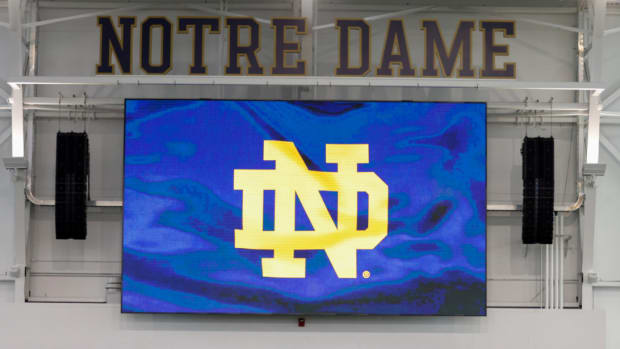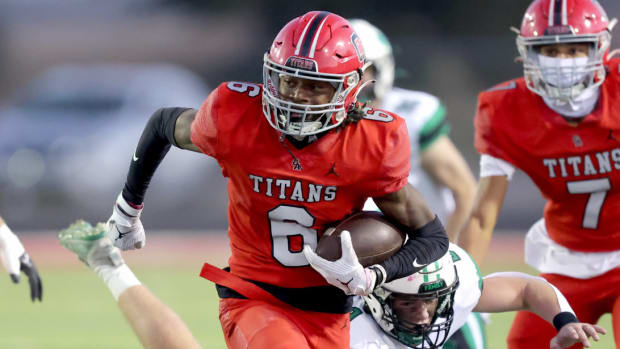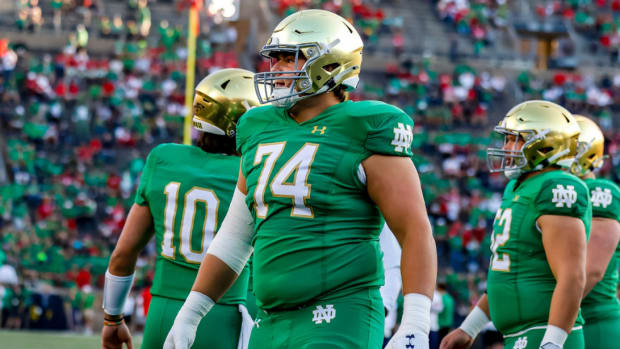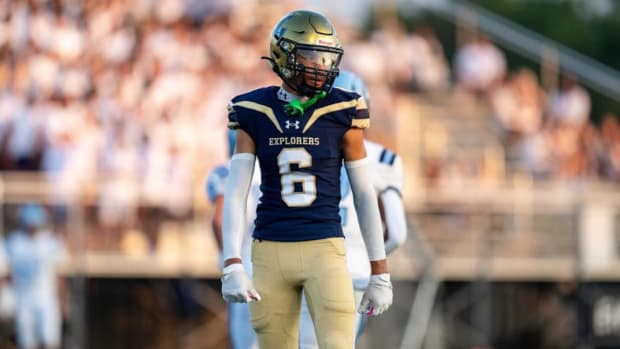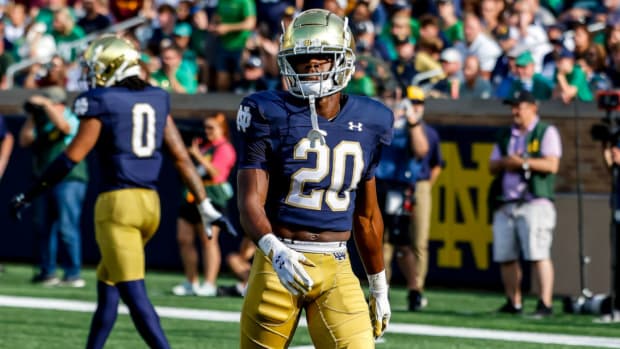NCAA Board Of Governors Wisely Pushes Back Against One-Time Waiver Proposal
The NCAA Board of Governors announced that it would recommend against the one-time transfer exemption that was previously proposed by the Transfer Waiver Working Group.
Under current rules, student athletes that play football, men’s basketball, women’s basketball, baseball and ice hockey at the Division I level cannot transfer as undergraduates without sitting out a year or getting a waiver. A vote will still happen in May, but the Boards decision to recommend against it was significant.
The mantra being pushed by proponents of the one-time transfer rule, including many in the national media, is that this is about freedom for student-athletes and is therefore a key to the welfare of student-athletes.
It would seem I’m in the minority on this issue, but I believe it was wise for the Board to push back against this movement.
As someone who has been on every side of this debate - a college student-athlete (football), a college football coach and now an analyst that covers the sport - I am completely against the notion of allowing one-time waivers to all student athletes.
It’s far too simplistic and naive to say allowing one-time transfers is in the best interest of student athletes. Not only would this create a brand new talent stream for the haves to use against the have nots, it would make an even dirtier business even dirtier.
A one-time waiver also creates a reality in which every student-athlete can make whatever emotional decision he or she wants. Under the current rules, transferring is something one must be thoughtful about. You are sacrificing an entire season, so you will only do it if you are truly set on this decision and have gone through a process of engaging your family, coaches (current and past) and others who a student-athlete trusts.
Creating a one-time waiver would create a ridiculously high level of roster turnover, which would not only be bad for the college game (especially football), it would generate a higher volume of immature, emotional decisions that student-athletes will often look back on with regret.
The unintended consequences from those who believe they are truly looking out for the well-being of student-athletes would be staggering, and no one seems willing to have a real conversation about this. It's all about emotion and a naive push for "student-athlete freedom" that doesn't really address actually making the welfare of student-athletes any better, and would end up making it far worse.
I’m speaking from experience on this. I transferred after my freshman season because I was upset with my head coach. There was no penalty so I could just make that emotional decision and leave, but I didn’t think it through the way I should have, and the way that I advised my own players when I became a coach. Transferring is a useful tool, but making it easier to access would be a really poor idea.
I’m also a believer that knowing there’s an “out” if you don’t like how things go early in your career you’ll see young people make more emotional decisions coming out of high school. It’s easier to do that when you have an immediate out, but when you know there are consequences to leaving it necessitates a more thoughtful decision. It doesn’t always happen, but it happens more because of the current rule.
I don’t believe the current transfer process is perfect, either; far from it. Far too often coaches who makes hundreds of thousands of dollars, if not millions, and are trained to manipulate (yes, that is what recruiting is) often make promises to student-athletes they have no intention of keeping.
One change I would advocate for is an addendum to the national letter of intent that student-athletes sign. If a coach makes a promise to a student-athlete, something like he’ll start as a freshman, or play X number of snaps, or get a specific jersey number or whatever else, the school should put that in writing and it should become part of their NLI agreement.
If a school then does not live up to their end of the agreement a student is then granted a one-time waiver.
If a head coach leaves or is fired I would propose a window in which players could transfer without sitting out. The rule would look like this, if a head coach leaves the program would have 30 days following the new coach’s hire to meet with players and make roster decisions.
That would entail that coach deciding what players don’t fit his system or aren’t character fits for his program. It would be current roster players and incoming players.
It would also give the student-athletes the opportunity to meet with the new coach and find out what he’s all about. At the end of the 30-day window, student-athletes would then have 30 days in which they could find a new school. It would give them a window to “test the waters.” If they don’t transfer they would then remain on the roster of the current program and be held to the same transfer standard.
Players looking to test the waters would need to enter the portal, which would prevent other programs from calling whatever players they want.
There are other meaningful proposals that we could discuss if we truly cared about the well-being of student-athletes that stop far short of what would be a devastating rule change that would ultimately empower the few and punish the majority of student-athletes in one way or another.
Sadly, no one seems willing to engage in a rational discussion. Most have grabbed onto the one-time transfer rule as the latest feel-good push without really thinking through the consequences.
I’m all for student-athletes being granted more rights and freedoms, but just allowing them to do whatever they want isn’t always the best policy. It sounds nice, it is certainly popular and it makes those who hold that view feel good about their “fight for freedom,” but it’s also a bit naive to think it’s always in the student-athletes best interest.
Sometimes the grown ups in the room, the people that have the experience, do in fact know what’s best. You don’t allow your 10-year old child to determine the meal plan for the family during the week, right? You don’t allow your 15-year old to tell you what his curfew should or shouldn’t be, right? Similar thought process here.
Players need protections from dishonest coaches, and they need to have outs when it comes to coaches leaving from job to job. But those protections need to be truly thoughtful, and simply doing the “one-time waiver’ might make you feel better about yourself for supporting, but it’s not something that would be good for the game, or the student-athletes we say we care about.
Be sure to stay locked into Irish Breakdown all the time!
Join the Irish Breakdown community!
Subscribe to the Irish Breakdown podcast on iTunes.
Follow me on twitter: @CoachD178
Like and follow Irish Breakdown on Facebook

